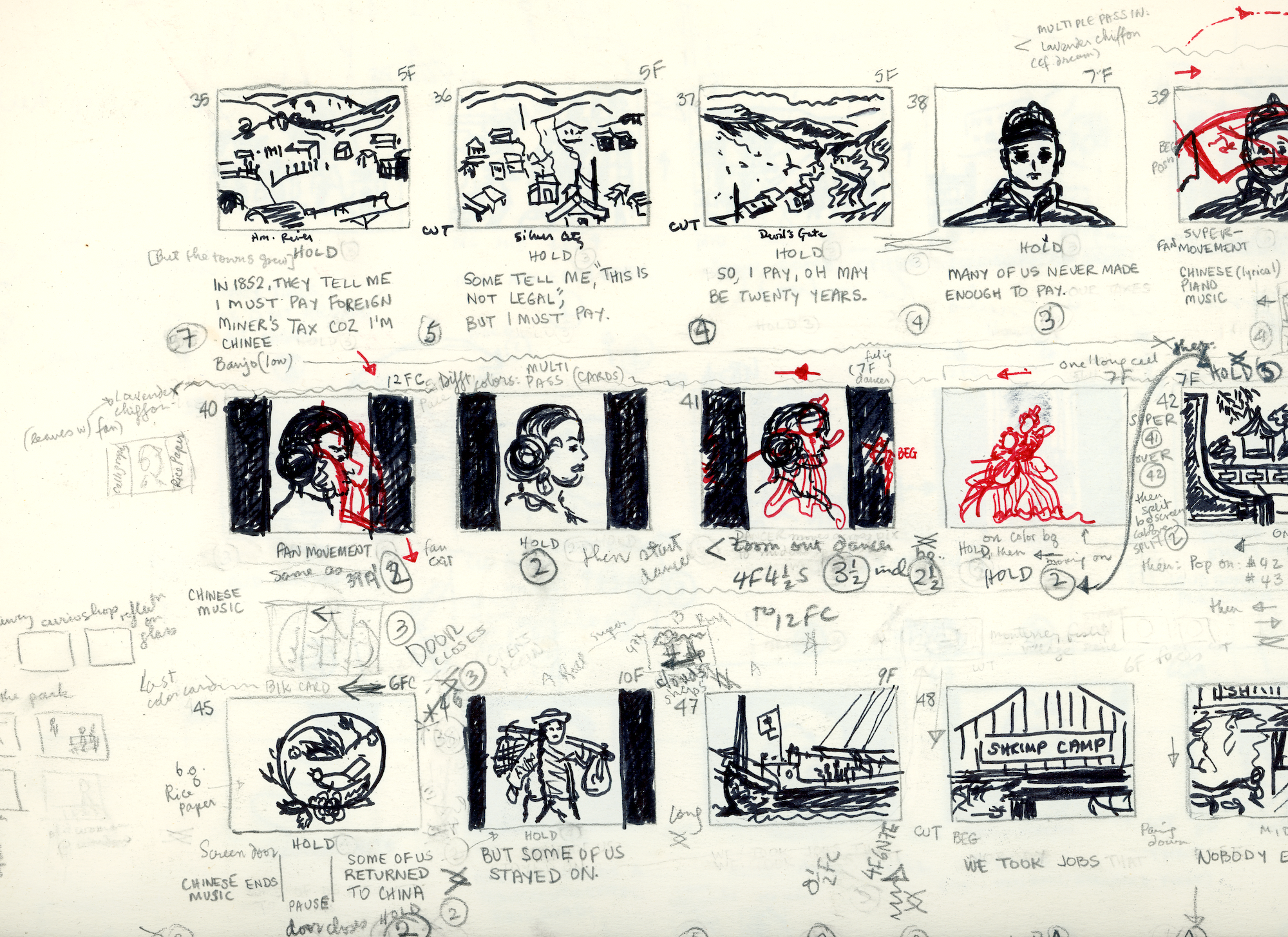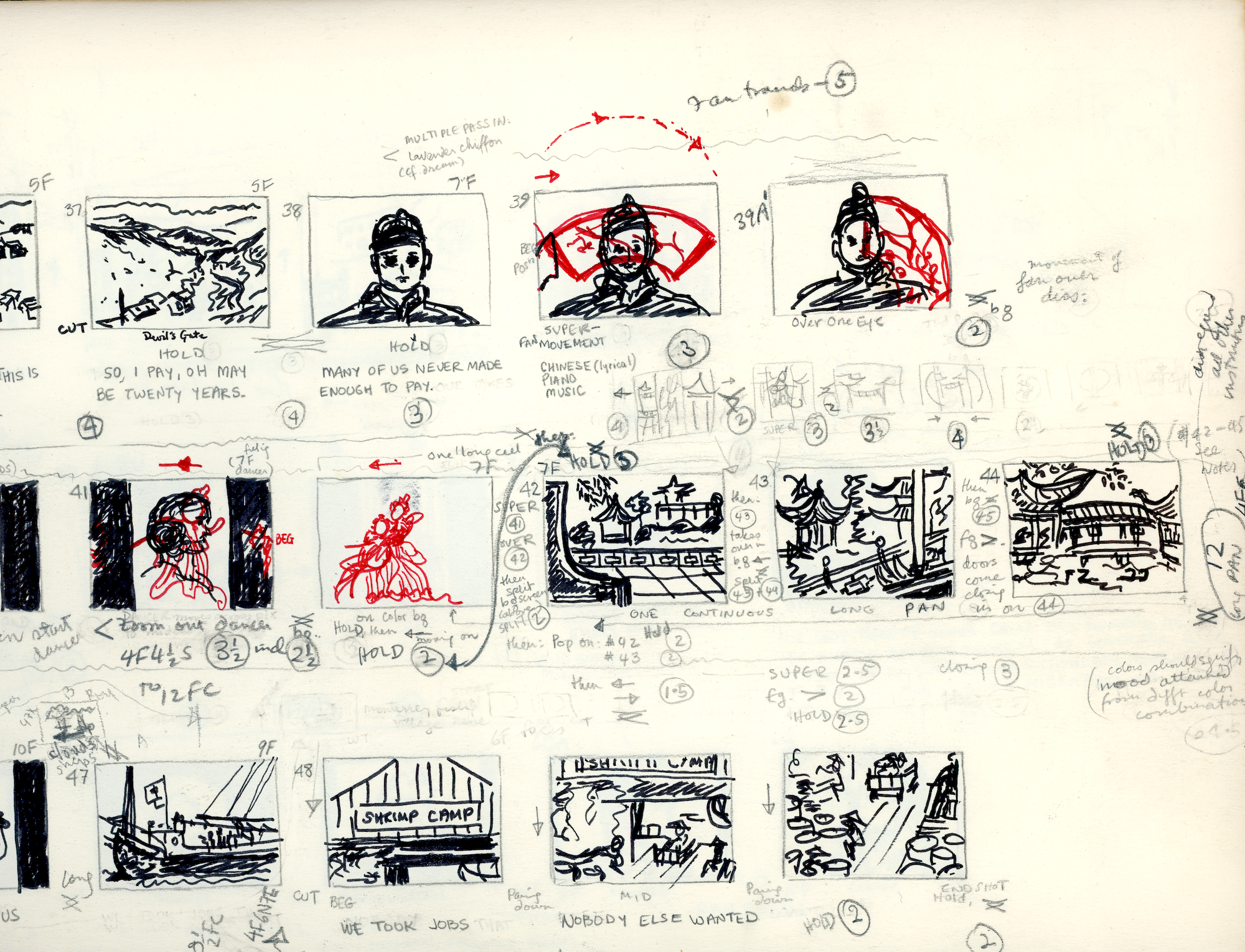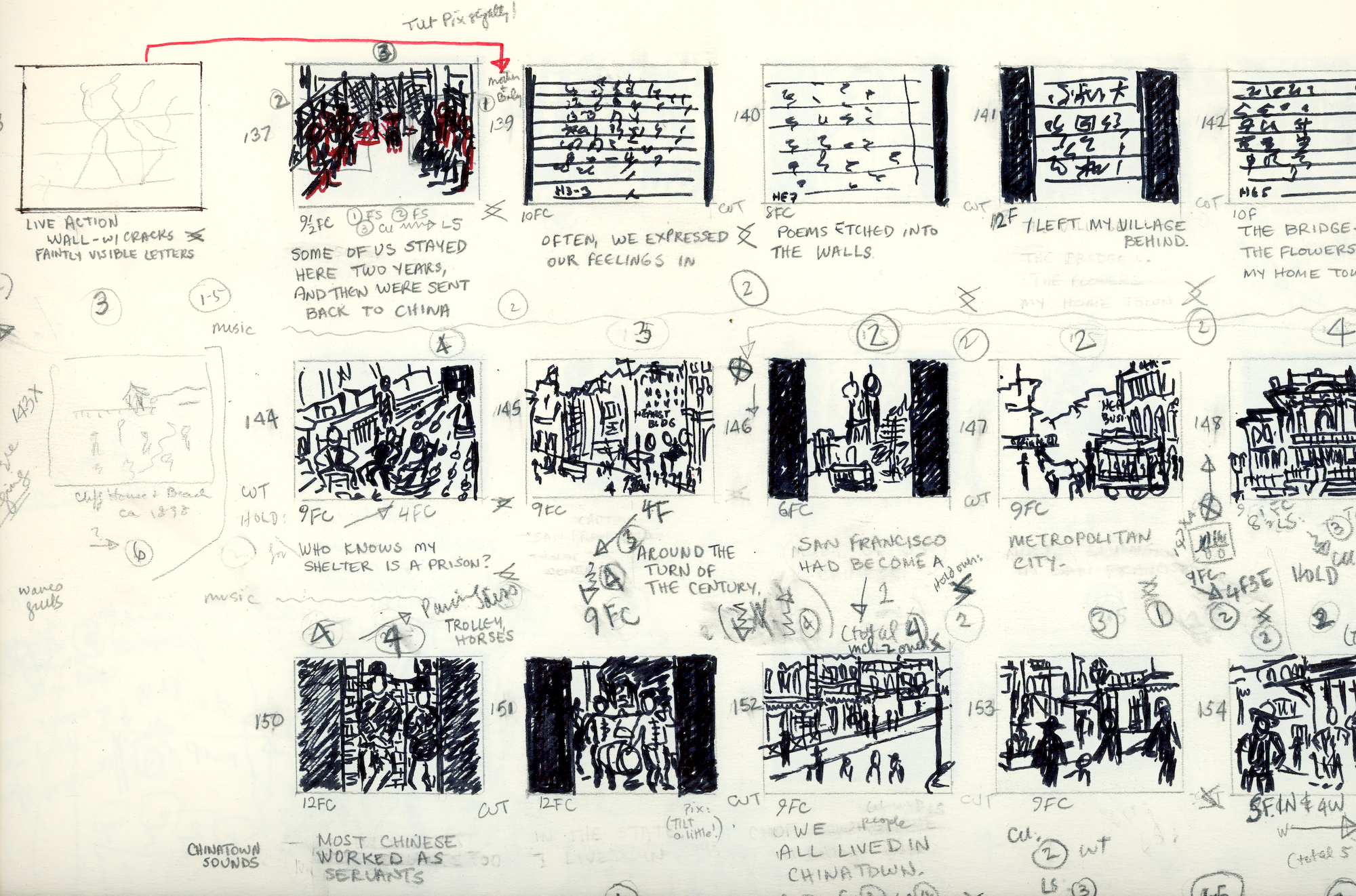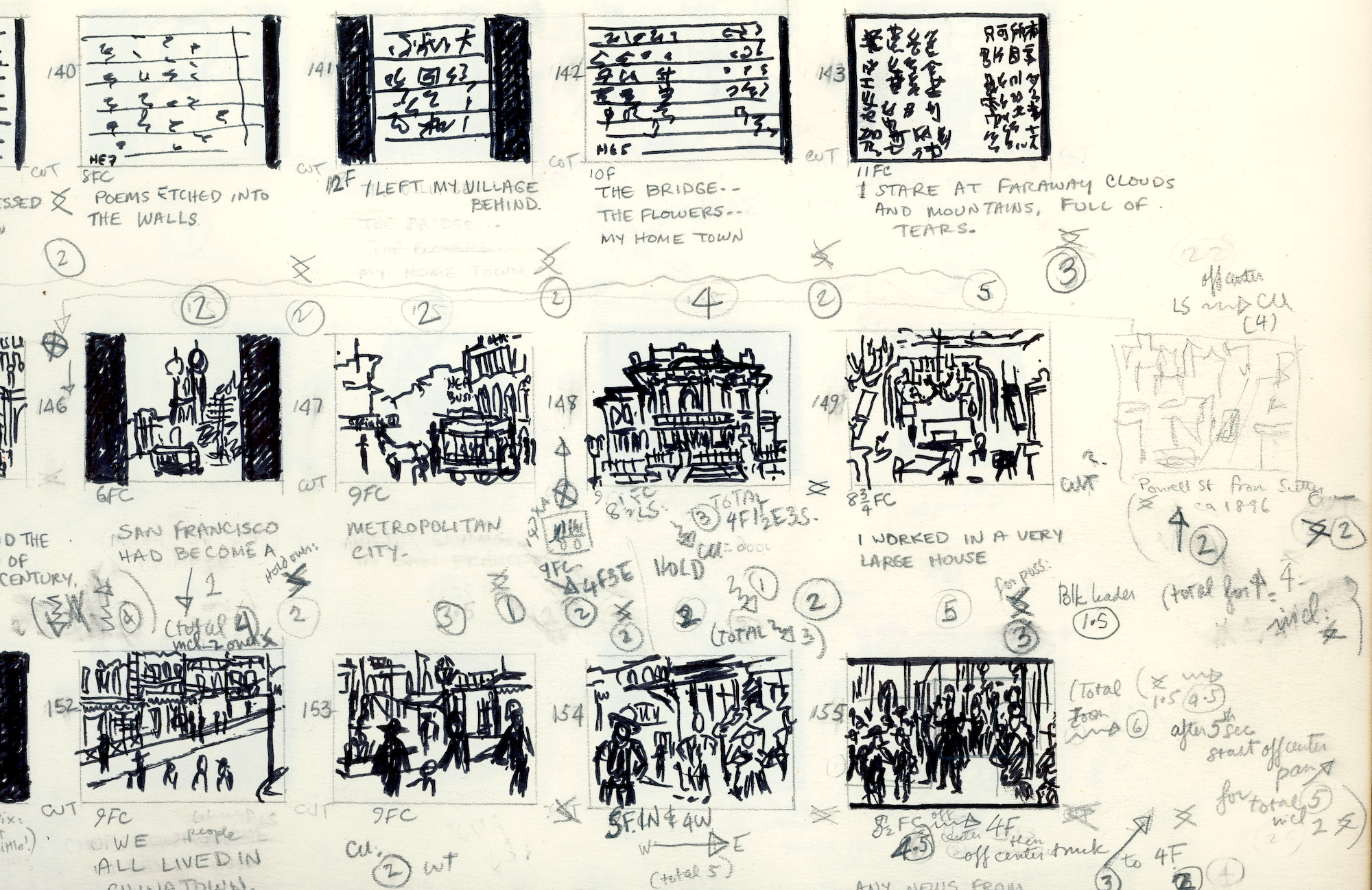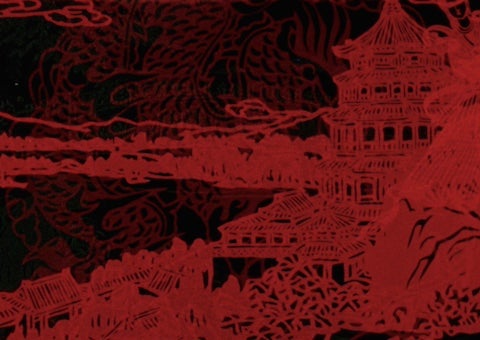
In Transit: The Chinese in California (1977)
Our guest writer is Lily Lubin, a recent UCLA graduate of the Master of Library and Information Science degree program with a specialization in Media Archival Studies. Lubin worked under the supervision of UCLA Film & Television Archive staff to inspect, prepare, digitally restore and preserve the film In Transit. This internship was made possible by generous funding from the Myra Reinhard Family Foundation.
In the summer of 2023, I had the chance to select and restore a student film as part of the UCLA Student Film Initiative Internship: The Present Preserving the Past. Among the variety of student films that were inspected, one title in particular, In Transit: The Chinese in California (1977), stood out to me. A blend of live-action scenes, animation and photo prints, the film uses myriad elaborate effects to merge these components together into a 24-minute documentary about the experiences of Chinese immigrants in California during the 19th and early 20th century. One thing that intrigued me about the film was how the credits reflected the activism taking place on campus and in the film program to enroll and support the work of students from diverse backgrounds. It even features narrations from founding members of the East West Players, one of the first Asian American theater organizations in Los Angeles: Beulah Quo, James Hong and Pat Li. In researching the title online, there was scarce information to be found about the film. The UCLA Film & Television Archive has three prints in their collection of In Transit, although the original elements which were held at the Deluxe Film Lab are unable to be located since the lab closed permanently. These are just a few of the factors that encouraged my selection of In Transit. Through details written on the original film can that had an address and telephone number, I was able to locate the filmmaker, Lilian Wu; we got in contact, and I had the opportunity to talk to her and learn more about the production history.
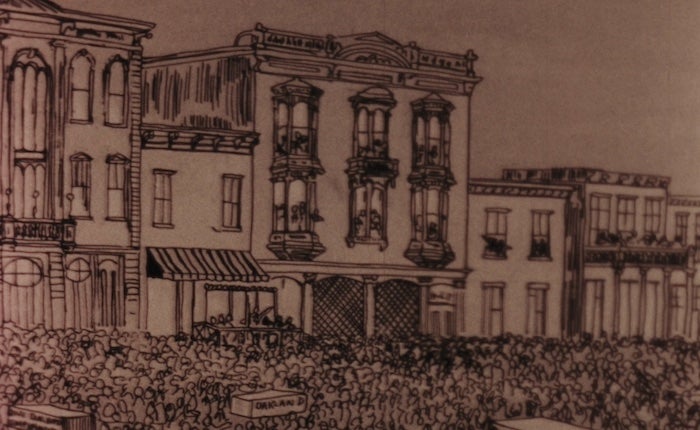
In Transit took over three years to complete and was made at a time when the campus politics and student films were evolving. Initiatives — such as the creation of the Ethno-Communications Program (1969-73) by Elyseo Taylor within the film school and the establishment of the Asian American Studies Center (1969) — were part of this transformation that reflected the increasing student activism and artistic expression taking place across UCLA. Lilian Wu attended UCLA for most of the 1970s: she received a B.A. in theater in 1971 from the College of Fine Arts, an M.F.A. in film from the School of Theater, Film and Television in 1976, and an M.B.A. with the Graduate School of Management in 1979. And although the filmmaker herself was not actively a part of the student protests, she worked with many student filmmakers who have since been noted as influential figures in UCLA’s film school history and in what has become known as the L.A. Rebellion student film movement. I would argue that In Transit is directly reflective of the evolving campus, as more students were using filmmaking to their advantage as a platform for freedom of speech and to represent more diverse viewpoints.
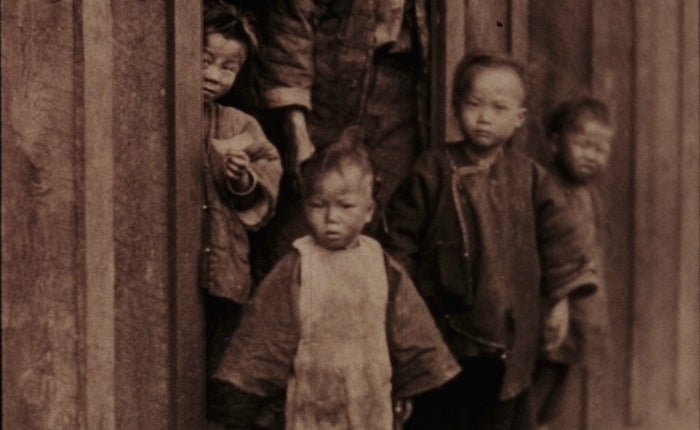
The film's initial release was met with a mixed reception. In 1977, the Los Angeles Times reviewed In Transit as part of the UCLA in Focus film series, a program that screened nine student films. In its brief mention, the reviewer described the film as an “angry historical indictment of the prejudiced treatment of Chinese immigrants in California.” Lilian recalled that when the film was completed, her professor, Flora Mock, showed it to friends who were distributors, who told Mock that they would never be able to rent the film out because there wasn’t a balance of perspectives — according to them, it only featured the Asian point of view, and because of this the film wouldn’t do well in school districts. Contrary to those comments, the film was well received by Wu’s professors, who highly encouraged her to submit to festivals and distributors; In Transit won awards, in 1977, at the Chicago Film Festival and the Council of International Nontheatrical Events.
Because In Transit involves the use of different elements such as older photo prints, there are some areas of the film that have pre-existing damage and dirt on the image itself. In my role as preservationist, I have aimed to keep the look of the film as close to the original version as possible because of the value in viewing the film as originally made. I feel that in keeping the prints as congruous to their original quality as possible, it allows the audience to interpret the historical qualities of the prints for themselves.
I am tremendously grateful to Lilian Wu for sharing her time and input during the preservation of this title, and just as I have had the opportunity to this summer with the UCLA Student Film Initiative Internship, I hope that this contribution can help to broaden the public scope of what types of student films were being made at UCLA and how the subjects of those films transforming over the decades to reflect the social, artistic and cultural evolutions that were taking place on campus.
Watch In Transit: The Chinese in California:
In Transit storyboards by Lilian Wu provided by the filmmaker (click to enlarge):
Bibliography:
“Cine.” Wikipedia, January 29, 2023. https://en.wikipedia.org/wiki/CINE.
Gross, Linda. "Students' Best in 'UCLA in Focus'." Los Angeles Times (1923-1995), Jun 03, 1977. https://www.proquest.com/historical-newspapers/students-best-ucla-focus/....
Lubin, Lily, and Lilian Wu. Interview with Filmmaker. Personal, August 16, 2023.
< Back to the Archive Blog






 Mobile Navigation
Mobile Navigation

